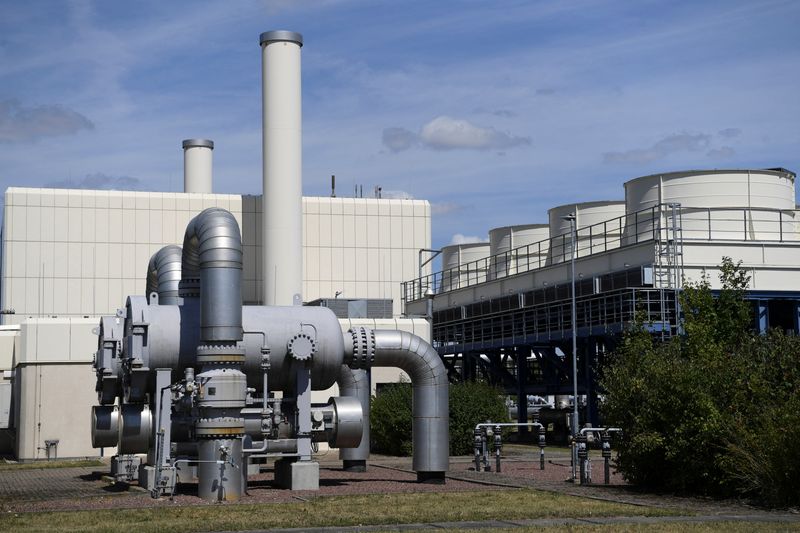FRANKFURT (Reuters) - A German expert commission that has been charged with drawing up plans to ease the impact of high gas prices on consumers on Monday delivered the outline for a package worth 96 billion euros ($93.2 billion) to the government.
Aimed at households and companies, the plan, which serves as a guideline for Berlin, aims to soften the blow to Europe's largest economy in the wake of soaring prices for gas, the most vital energy source for the country's industry.
Below are the key details:
WHAT'S THE SCHEME?
- 70% of annual gas consumption - with 2021 serving as the benchmark year - are subject to a procurement price cap of 7 euro cent per kilowatt hour, less than half the roughly 16 cents currently
- this is tied to a site guarantee as well as a transformation plan to make sure that only factories with a long-term prospect are funded
- companies can either use the gas or sell it on the market
- the remaining 30% of consumption are subject to much higher market prices, effectively creating a substantial incentive for companies to accelerate savings efforts
- in total, the scheme has a volume of 25 billion euros
WHO'S ELIGIBLE?
- firms with consumption of more than 1.5 million kilowatt hours per year, which according to the commission, amounts to 24,000-25,000 companies
- these include heavyweights Covestro, BASF, Heidelberg Materials, Siemens Energy, Wacker Chemie, Evonik, Lanxess and Thyssenkrupp (ETR:TKAG), shares in which were all up 2.5%-6.5% following the announcement
- excluded are gas-fired power plants, large residential units as well as additional consumers that are still to be identified
WHEN DOES IT START?
- the scheme is to kick in from Jan. 1, 2023 and run until April 30, 2024.

- there will be a review by May 31, 2023 on whether the instrument meets needs and expectations
($1 = 1.0305 euros)
